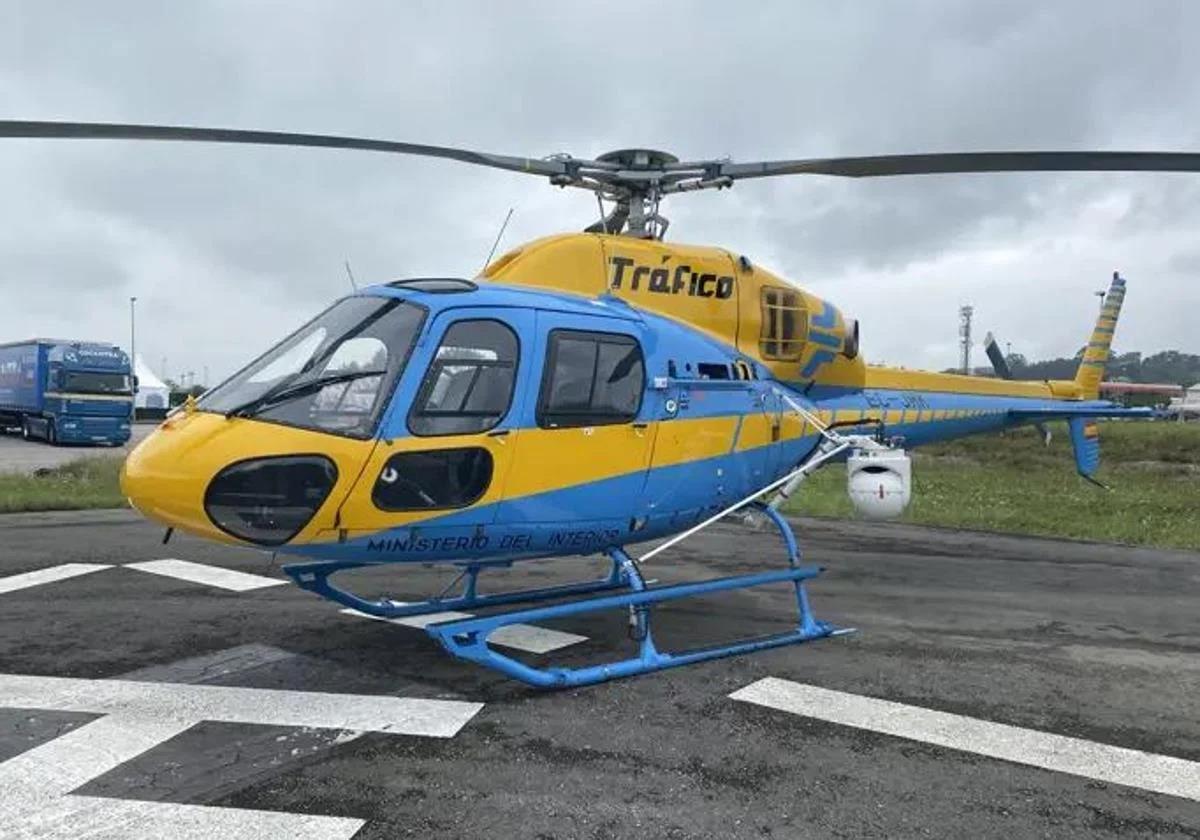Wednesday, 3 September 2025, 18:53
The helicopters operated by Spain’s highways authority, the Directorate-General of traffic (DGT), are now out of service as of Monday 1 September while waiting for a new contract to be awarded for aircraft maintenance. The DGT itself confirmed the grounding to Europa Press, but it expects the airborne unit to be up and running again in “a matter of days” once the contract has been awarded.
The two key trade unions affected by this situation, the UGT and CCOO, have condemned this state of affairs, which they describe as “absurd” , demanding an explanation from the agency that falls under the responsibility of the Ministry of the Interior. For its part, the DGT has given assurances that surveillance of the country’s roads is ensured by othermeans, such as Guardia Civil traffic patrols, radars, surveillance campaigns and traffic-monitoring hubs. It also expects these nine DGT helicopters to be flying again “in a matter of days”.
“Road surveillance is assured because all other resources are operational, and the helicopters never fly 24/7 in any case,” insisted the DGT.
However, the UGT union has also denounced the inoperability of 38 drones purchased by the DGT in 2020, “which are idle and rendered inoperable on the instructions of the head of the airborne unit”. The DGT, however, has assured this newspaper that these devices “are operational”.
As for the other trade union, the CCOO has accused the Ministry of the Interior of wanting to privatise “road safety” and has criticised the offer of a contract worth “40 million euros over four years to one company”, which will mean leaving all “the services on which aircraft depend” in private hands.
Therefore, says the union, “all their requirements will be centralised in this single contract, with a single company”, which will open “the doors of road safety to business speculation within the DGT”. This, they claim, is already happening in Spain’s traffic management centres, “where private players already have contracts worth over 30 million euros every two years to carry out tasks” within these agencies.
In the case of the traffic management centres, the CCOO has denounced the privatisation policy pursued by central government in “these critical infrastructures and essential services”. The current big-screen, traffic-monitoring centres control more than 1,700 cameras, 2,000 information panels and 2,400 data collection stations, as well as several areas with reversible lanes, according to the union.
“This allows for traffic alerts to be issued and assistance to be dispatched in the event of accidents, as well as other situations that occur on the road network,” said Fernando García Castro, secretary-general for the CCOO’s member services unit. The trade union regrets that the grounding of the airborne unit leaves “patrol teams from their bases in Madrid, Valencia, Malaga, Seville, Zaragoza, La Coruña and Valladolid, who cover all road safety throughout the country”, unable to fly.
Therefore, the CCOO is calling for the Ministry of the Interior to undertake the “necessary reforms to explore publicly-run ways forward that protect the aforementionedservices as they contain critical and essential infrastructures”.
